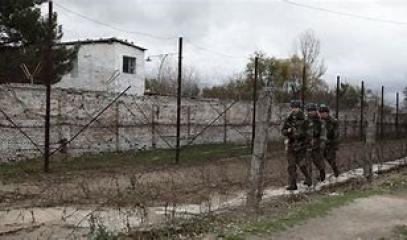Dushanbe: Rehabilitation of 'extremists' imprisoned for a Like
The goal of the program is to help inmates return to a "dignified life" in society. The state is prepared to allocate nearly .6 million for a five-year plan. The real threat of radicalization arises within prison walls. The exponential increase in convictions is linked to the political class's crackdown on dissent.
Moscow (AsiaNews) – In Tajikistan, a new rehabilitation and reintegration program has been launched for individuals convicted on charges of extremism. This is seen as essential due to the large number of prisoners jailed for such offenses. In practice, many of these inmates did not pose a genuine threat to society—at least not before ending up behind bars.
According to official documents, the program is aimed at reintegrating "extremists" into a "fully dignified life in society." To this end, rehabilitation institutions plan to offer various initiatives, from psychological counseling to craft workshops, cultural events, and courses in prison psychology.
The state is providing an investment of 38.5 million somoni (approximately .6 million) over five years, funded through both the national budget and external sources, including voluntary donations.
Officials from Tajikistan's Penal Sanctions Administration (Guiun) stated that “the program will help inmates rid themselves of destructive beliefs and prepare for their return to society.” The exponential growth in convictions for extremism is also driven by increasingly harsh government policies targeting any form of public expression deemed too radical.
According to Interior Minister Ramazon Rakhimzoda, 1,750 such cases were recorded in 2024, with 365 individuals arrested for participating in extremist groups.
Another 401 are currently wanted, while 499 have voluntarily turned themselves in. The minister also reported 212 cases of “terrorism and extremism financing,” resulting in 112 arrests.
One key factor fueling radicalization is Tajikistan’s proximity to Afghanistan—a long-standing national security concern since the country gained independence three decades ago.
As reported by Amnesty International, Tajik courts often use arbitrary and questionable criteria, handing down severe sentences even for actions as minor as liking a social media post, effectively reducing freedom of expression to a bare minimum.
As Temur Umarov, an expert from the Carnegie Center in Berlin, explains, “Restrictions on freedom and pressure on the media lead to every form of activity being viewed as a threat to the state.”
In April, following criticism from President Emomali Rahmon himself, legal amendments were introduced to remove criminal penalties for internet likes and reposts containing criticism of the regime or showing sympathy for banned organizations. Previously, these were treated as serious offenses, but the House of Representatives has now excluded them from automatic penalties.
According to Tajikistan’s First Deputy Prosecutor, Umed Karimzoda, over 1,500 individuals are currently imprisoned for social media interactions such as posts and comments. Many observers argue that the real radicalization actually occurs inside prisons, “where people arrested for minor offenses begin listening to sermons by those convicted of genuine ideological and religious extremism,” as one anonymous source told Radio Azattyk.
Azamat Shambilov, a human rights expert from the International Penal Reform Fund for CIS countries (IPPF), agrees. He notes that “radicalization in prison is a global phenomenon occurring in many countries, especially among more vulnerable inmate groups, turning prisons into true incubators of extremism.”
The paradox of repression in Tajikistan is that these policies often turn peaceful individuals into potential terrorists, thereby increasing the risk to society. This is the reason behind the new rehabilitation initiative—a step back intended to prevent a dangerous escalation with potentially devastating consequences.
12/02/2016 15:14
04/03/2021 16:47








.png)










